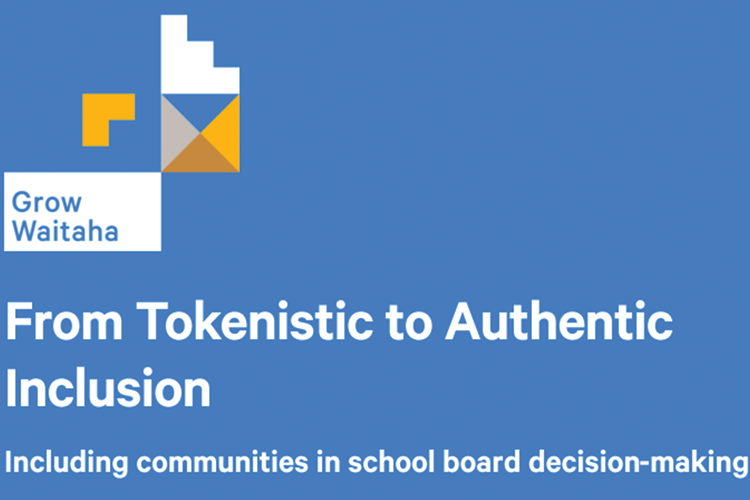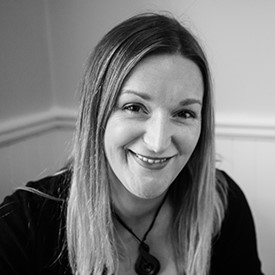
July 1st, 2023
Authentic inclusion in school board decision making
To support effective community engagement in school board decision making, Grow Waitaha has produced a new report, From Tokenistic to Authentic Inclusion: Including communities in school board decision-making, which is complemented by a shorter summary report.
What is Grow Waitaha?
Grow Waitaha, which Leadership Lab has been part of since its inception since 2015, has supported schools in post-earthquake Canterbury through educational transformation. It continues to work with school communities through the process of educational change. Governed by Te Tāhuhu o te Mātauranga | Ministry of Education, Grow Waitaha is a partnership between its governors, three education providers (CORE Education | Tātai Aho Rau, Evaluation Associates Ltd | Te Huinga Kākākura Mātauranga, and Leadership Lab), kura and their communities.
How does this report and its findings matter from a leadership perspective?
Two of the authors of the report shared their thoughts.
These resources provide a framework for how school boards can authentically include their schools’ communities in the decisions they make. The approaches discussed in the report demonstrate to the wider community a board’s ability to lead effectively and inclusively by facilitating engagement opportunities, building trust-based relationships with the community, and adopting effective transparency and accountability measures.
Also, it may be worth noting that in various parts of the report where collaboration approaches are discussed (especially when working with iwi and hapū), there is discussion of sharing decision-making power with the board’s role being to find out what a problem means for the people experiencing it, rather than to solve the problem. This requires a mindset shift from the board and embodies aspects of collaborative leadership.
Helena Avery
Engagement and consultation processes form an essential aspect of the governance functions of schools. We see this as an important area for school leaders (Principals, senior leaders, and board members) to enact good governance practices that empower the communities their schools serve. The goal is for leaders and school governance to engage in processes that empower ākonga, whānau, and wider school communities as decision-makers and active participants, rather than engaging in protocol box-ticking and tokenistic approaches. I believe this fits more into authentic and participative forms of leadership that actively engage others.
Jordan Mayes
What are some of the key findings of the report?
Read the full report or short summary, including 10 top tips for including the school community in board decisions.
How is this relevant for you if you don’t work in the education sector?
Authentic, rather than tokenistic, inclusion is important in all sectors, whether with customers or employees. Consider who the key stakeholders’are for your organisation, business or workplace and ask yourself what strategies and approaches you, or your leadership, adopt to include and engage with these stakeholders and why it matters.
Acknowledgements
Gabrielle, Jordan and Helena’s report has recently been profiled by NZSTA (New Zealand School Trustees Association) newsletter (check out pg 17) which means that school boards around the country are now aware of this resource. This is incredibly appropriate timing with 2023 being the year where school boards should be meaningfully engaging with and listening to the voices of their communities as they develop their new strategic plan.
Ngā mihi,
Gabrielle Wall, Leadership Lab Consultant, and Principal Consultant with D & G Consulting with her team Jordan Mayes and Helena Avery.
You can also connect with stories of impact from across our Leadership Lab ecosystem by signing up for this monthly pānui (see bottom of www.leadershiplab.co.nz ), joining our Leadership Lab LinkedIn page and browsing our website. Thanks heaps for your interest.

July 1st, 2023
Authentic inclusion in school board decision making
To support effective community engagement in school board decision making, Grow Waitaha has produced a new report, From Tokenistic to Authentic Inclusion: Including communities in school board decision-making, which is complemented by a shorter summary report.
What is Grow Waitaha?
Grow Waitaha, which Leadership Lab has been part of since its inception since 2015, has supported schools in post-earthquake Canterbury through educational transformation. It continues to work with school communities through the process of educational change. Governed by Te Tāhuhu o te Mātauranga | Ministry of Education, Grow Waitaha is a partnership between its governors, three education providers (CORE Education | Tātai Aho Rau, Evaluation Associates Ltd | Te Huinga Kākākura Mātauranga, and Leadership Lab), kura and their communities.
How does this report and its findings matter from a leadership perspective?
Two of the authors of the report shared their thoughts.
These resources provide a framework for how school boards can authentically include their schools’ communities in the decisions they make. The approaches discussed in the report demonstrate to the wider community a board’s ability to lead effectively and inclusively by facilitating engagement opportunities, building trust-based relationships with the community, and adopting effective transparency and accountability measures.
Also, it may be worth noting that in various parts of the report where collaboration approaches are discussed (especially when working with iwi and hapū), there is discussion of sharing decision-making power with the board’s role being to find out what a problem means for the people experiencing it, rather than to solve the problem. This requires a mindset shift from the board and embodies aspects of collaborative leadership.
Helena Avery
Engagement and consultation processes form an essential aspect of the governance functions of schools. We see this as an important area for school leaders (Principals, senior leaders, and board members) to enact good governance practices that empower the communities their schools serve. The goal is for leaders and school governance to engage in processes that empower ākonga, whānau, and wider school communities as decision-makers and active participants, rather than engaging in protocol box-ticking and tokenistic approaches. I believe this fits more into authentic and participative forms of leadership that actively engage others.
Jordan Mayes
What are some of the key findings of the report?
Read the full report or short summary, including 10 top tips for including the school community in board decisions.
How is this relevant for you if you don’t work in the education sector?
Authentic, rather than tokenistic, inclusion is important in all sectors, whether with customers or employees. Consider who the key stakeholders’are for your organisation, business or workplace and ask yourself what strategies and approaches you, or your leadership, adopt to include and engage with these stakeholders and why it matters.
Acknowledgements
Gabrielle, Jordan and Helena’s report has recently been profiled by NZSTA (New Zealand School Trustees Association) newsletter (check out pg 17) which means that school boards around the country are now aware of this resource. This is incredibly appropriate timing with 2023 being the year where school boards should be meaningfully engaging with and listening to the voices of their communities as they develop their new strategic plan.
Ngā mihi,
Gabrielle Wall, Leadership Lab Consultant, and Principal Consultant with D & G Consulting with her team Jordan Mayes and Helena Avery.
You can also connect with stories of impact from across our Leadership Lab ecosystem by signing up for this monthly pānui (see bottom of www.leadershiplab.co.nz ), joining our Leadership Lab LinkedIn page and browsing our website. Thanks heaps for your interest.


